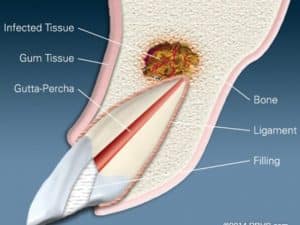Root End Surgery
Root End Surgery in Iran
Best root end surgery clinic in Iran
More than 35.000 Iranian and foreign patients are going under the root end surgery clinic in Iran each year. root end surgery clinic in Iran is on top of the middle-east regarding its skilled specialists and surgeons. Here are the best clinics for root end surgery in Iran:
- Maryam Clinic
Root end surgery cost in Iran
There is a significant difference between the cost of root end surgery in Iran and other countries. The most important factors for the low price of it in Iran are:
- A large number of root end surgery clinic in Iran
- A large number of applicants for root end surgery in Iran
Root end surgery cost in Iran varies depending on the root end surgery and the clinic. An average cost of root end surgery in Iran is $3,300.
Root end surgery cost in Iran in comparison with other countries
This surgery costs $2,300 in the U.S., $3,000 in Europe, $2,000 in Thailand and $300 in Turkey.
Best root end surgery surgeon in Iran
More than 70.000 dental surgeries are being performed each year in Iran. Experienced Iranian doctors with an excellent record are performing the operations. One of the most important factors for choosing a good surgeon for root end surgery in Iran is the doctor has done many root end surgery.
You can find the best doctors for root end surgery in Iran on our website by following their experiences.
Why should you travel to Iran for a root end surgery?
Many patients travel to Iran for root-end surgery. One of the reasons for this matter is Iranian specialists and surgeons who have high surgery success rates.
- Low cost of root end surgery in Iran
- Low cost of accommodation in Iran
- Well experienced doctors
- The high number of root end surgery in Iran
Root end surgery centres accordant with today’s European standards are performing the highest quality operations in Iran. Another reason for root end surgery in Iran is its lower cost compared to other countries.
How long should I stay for root-end surgery in Iran?

About Root End Surgery
Teeth have one or two or three roots due to their type. Each tooth has a root canal and a pulp which contains living connective tissue, blood vessels and nerves. Apicoectomy is necessary when the infection is progressing and does not disappear after nerve eruption (by root canal therapy). The root canals are complex, and apart from the main canal, several smaller branches may exist. It is possible that the infection remains in the branches after the root canal surgery, and causes reinfection. Apicoectomy is not a complicated procedure and has a high degree of success (more than 90%), especially if an expert does it.
Recommended for
Patients whose root canal treatment or retreatment was not successful.
Before Root End Surgery
It is recommended to do this method under the supervision of an endodontist or an expert dentist in root canal surgery. Before the surgery, the dentist takes some x-rays images from the teeth as well as the bones surrounding it and may prescribe antimicrobial mouthwashes and antibiotics to reduce inflammation and infection. The dentist will also check the medical history, and all the medications the patient is taking include over-the-counter drugs, vitamins and supplements.

During Root End Surgery
After prescribing local anaesthesia and when the patient feels completely numb, endodontist performs a small incision in the gum and removes it from the teeth and bones. Sometimes the dentists may need a drill to access the root. Afterwards, a small portion of the root tip and contaminated tissue will be removed. Then, the probability of tooth extraction is checked by using a special colour to detect the teeth cracks. In the end, the teeth are cleaned and closed. Radiography is taken from the tooth and surrounding area to ensure that the method is successful. After that, the endodontist returns the tissue and sutures it.
Recovery
The endodontist will prescribe some medicines like antibiotics or painkiller for the patient, and they should take them as he said. Usually, patients will get bruised and swollen in the next day, and it will continue for two days. They can put ice packs on that area. Also, they should avoid tooth brushing in the surgical area and clean the teeth with mouthwash.